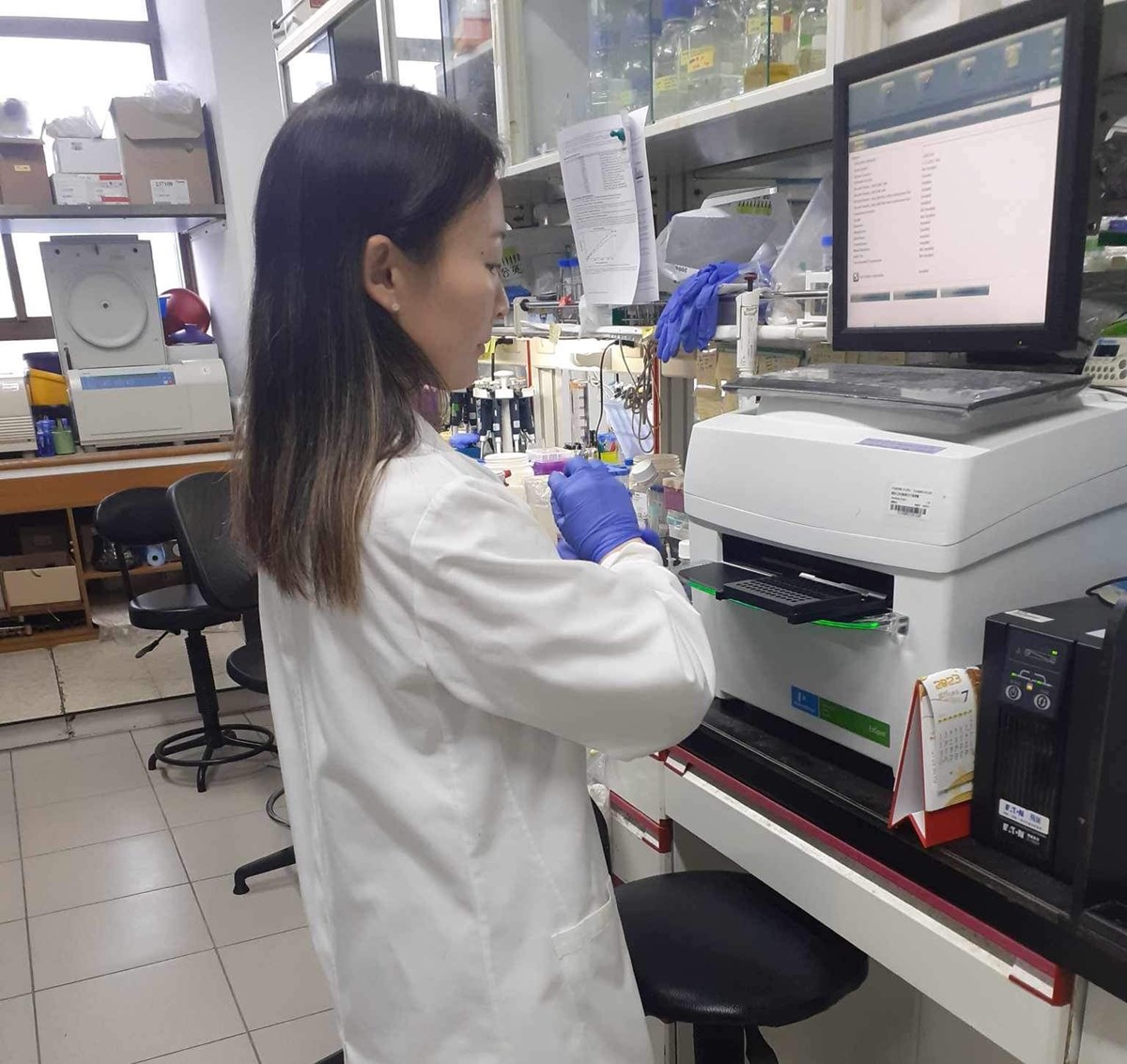
Update on
ANSO
Collaborative Research Project: Researchers
from Mongolian Academy of Sciences visited
Academia
Sinica
In 2022, researchers from the Institute of Biology, in collaboration with esteemed scientists from Academia Sinica and Chinese Academy of Sciences have initiated a collaborative research project funded by ANSO (Alliance of International Science Organizations). The primary objective of this project is to unravel the intricate relationship between exopolymer production by soil microbes and soil health. The research team believes the outcomes of their collaborative effort will pave the way to develop innovative microbial techniques aimed at restoring degraded soils.
.jpg?w=1200)
From left Dr. Sen-Lin Tang, Ms. Anumandal Orgil, Dr. Punsaldulam Dashnyam, Ms. Oyukhan Khandaa, Dr. Chun-Hung Lin, and Dr. Danny Yao.
As a part of this collaborative research project, three researchers from the Institute of Biology, Mongolian Academy of Sciences conducted their research activities at Academia Sinica between June 25th to August 24th, 2023. The team included Ms. Anumandal Orgil and Ms. Oyukhan Khandaa, who are researchers from the Institute of Biology, and Dr. Punsaldulam Dashnyam, the principal investigator of the collaborative research project. In addition to carrying out their research and receiving training, the researchers held meetings with their colleagues at Academia Sinica to discuss the research progress and upcoming endeavors.

Dr. Punsaldulam Dashnyam and Ms. Oyukhan Khandaa worked in Dr. Chun-Hung Lin’s laboratory at the Institute of Biological Chemistry, Academia Sinica. Their research focused on analyzing the major constituents of microbial exopolymeric substances derived from soil samples collected across a precipitation gradient in Mongolia. The outcome of this study holds significant value for linking the molecular diversity of soil exopolymers, soil characteristics, and environmental factors. Furthermore, they learned gas chromatography and mass spectrometry techniques to analyze monosaccharide composition and linkages of microbial polysaccharides. This analytical approach will be utilized for future studies to understand the activity and structure relationship of exopolysaccharides, which exhibit potential applications for soil restoration and wastewater treatment. Ms. Anumandal Orgil was trained in Dr. Sen-Lin Tang’s laboratory at Biodiversity Research Center, Academia Sinica. Her training encompassed both bioinformatic methods (the analysis of high-throughput sequencing data) and wet-lab skills (library preparation and barcoding techniques of DNA samples for amplicon sequencing). These skills are essential for deciphering the microbial community and functional diversity in the soil samples collected the previous year.
.jpeg?w=1200)
Mongolian team members express their deep gratitude for the warm hospitality and kindness extended by the members of the two host laboratories. They are thankful for the encouraging support of Dr. Chun-Hung Lin and Dr. Sen-Lin Tang, who generously provided the essential resources and materials, and more importantly their insightful advice on improving the quality and impact of the research.
.jpeg?w=1200)